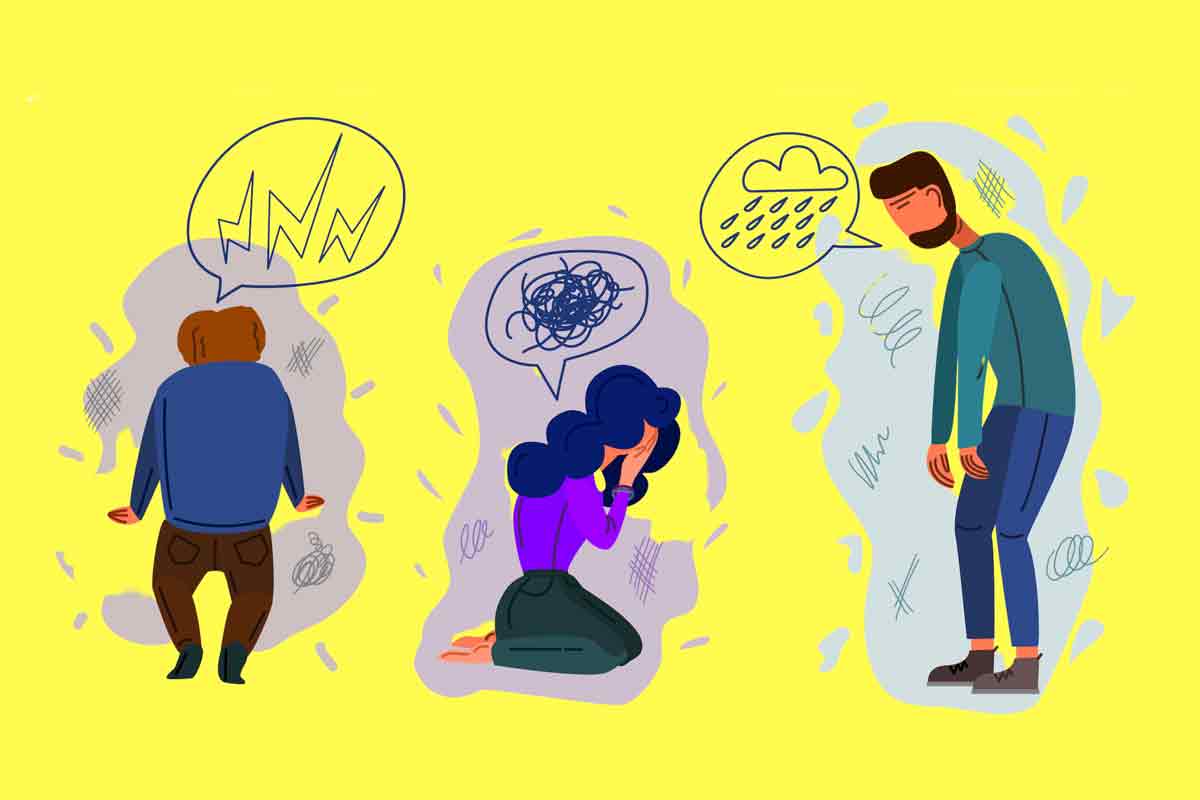Learning to navigate your life in recovery means becoming intimately acquainted with triggers – the people, places, things or feelings that can make you crave using again. Making yourself aware of common types of triggers can help prepare you to deal with them when they arise.
Triggers can pop up anywhere. You’re walking through the grocery store and bump into an old drinking buddy who invites you to the bar for a couple of beers. You have just arrived home after a long day of work and can feel tension rising in your chest. You are at the doctor’s office and a new physician’s assistant is suggesting a short course of pain medication for muscle spasms in your back. Just like that, your mind is consumed with thoughts of when you used to reach for a drink or a drug, and suddenly your recovery seems like it’s on shaky ground.
Taking the edge off of triggers involves, first, consciously recognising what they are – both before they come up, as well as when you encounter them. Identifying triggers helps you plan how to avoid them, and how to ground yourself when they do arise.
Understanding HALT: Being Hungry, Angry, Lonely, or Tired
What can stop a promising recovery? HALT spells it out for you – hunger, anger, loneliness, and tiredness can be major triggers that can eventually result in a relapse. These foundational physical and emotional conditions are absolutely critical areas of attention for those newly in recovery.
1. Hunger
Being hungry can make us fatigued and moody, contributing to irrational behaviours or outbursts. This state loosens your grip on recovery, making it easier for relapse to occur. Luckily, the solution is pretty straightforward – making sure that you have quality, high-energy snacks with you throughout the day to stave off hunger, and planning meals that are healthy and nourishing. Proper nutrition in recovery is essential, and can make a huge difference in decreasing cravings and improving your overall sense of wellbeing.
2. Anger
Anger is another common trigger for relapse. The stress and discomfort of anger, which may be combined with feelings of helplessness, guilt, or frustration, can lead you to seek an immediate release via old habits. While we can’t – and shouldn’t – completely avoid feelings of anger, we can change the way we manage and process these feelings. This means analysing and understanding why you are angry, and then making a decision about how to release some of the tension caused by it. Going for a workout or talking to a trusted friend can help soothe turbulent emotions.
3. Loneliness
Recovery can feel lonely at times, especially if those around you don’t really understand your experiences with addiction and what it takes to remain sober. This feeling of isolation can lead to relapse, and so ensuring that you have access to a community of support is essential. This could mean reaching out to a therapist or joining a support group, or simply meeting up with a friend who is good at listening and understanding. If you’ve been physically isolated for a while, aim to get outside to a place where you can safely be in the company of others, such as a public park. Sometimes simply being around other people can help diminish the sense of loneliness that may creep up in recovery.
4. Tiredness
Long hours at work, lengthy commutes, household responsibilities and nonstop access to the conveniences – and burdens – of modern technology mean that many of us aren’t getting the sleep we need to function at our best. Being tired can affect many aspects of your health and mood, and set the stage for a potential relapse.
Prioritising sleep is a must, as is trying to stick to a sleep schedule. Like eating well, the amount and quality of sleep you get can have profound impacts on your recovery. Creating a good sleep environment, setting limits on your tech use before bed, and establishing a nightly routine that promotes relaxation and rest can help you get the sleep you need.
Situational Triggers: People, Places, Events, and Things
While some triggers arise because we are not properly meeting our basic physical or emotional needs, others come up when we are confronted by aspects of our past addiction, or faced with change. Anticipating these, and having a plan for what to do when triggered, are key elements in avoiding relapse.
5. Places from Your Past
When we think about places as triggers, it could be any physical location you have associated with substance misuse – someone’s home, a bar, or even a car. It could also be places where you experienced events related to your addiction – a street where you had a drunk driving accident, or a coffee shop where you used to go to nurse a hangover.
You can choose to simply avoid these places if possible, but if it’s not, preparing yourself is key to helping manage your trigger response. Be aware that the response you will have is a trigger, and think of other ways to bring your mind back to the present. You may ask a friend to accompany you to help talk through what you’re feeling and bring your attention elsewhere, or you might call your sponsor or counselor.
6. Parties and Holidays
Celebrations can be a major trigger, and for good reason. The free flow of alcohol or other recreational drugs, the desire to let loose and have a good time, and the potential of being around co-workers or family members that may act as triggers themselves can cause serious concern for someone in recovery.
Think through in advance how you are going to manage a party or holiday event. Consider how you’ll turn down an offer of a drink, how you’ll excuse yourself from an uncomfortable conversation, and how long you want to stay. It’s completely okay to go home early if you are feeling overwhelmed, and having a plan of how to do it beforehand can help ensure you make a smooth exit.
7. Getting a New Job or a Promotion
Life events that are generally seen as positive can still be triggers. One reason is because the element of change can create stress and trigger thoughts of using. While you may be excited for your new job, you might also be worrying about your ability to be successful at it. A trigger can also arise from the desire to celebrate your accomplishments. You might think that just one drink with friends will be alright, but this could result in a full relapse.
Anticipating how to handle change, either positive or negative, can help prepare you for managing these situations when they come up. Identifying what you enjoy in recovery, whether it’s getting outside or indulging in a great meal, can set you up for safe celebrations, while building healthy coping mechanisms can mitigate stress around change.
8. Your Memories
You may find yourself in situations where you begin romanitcising or glamourising your past substance use in conversation, or creating a more positive narrative about it in your own mind. This is a serious warning sign that should be raised with an addiction specialist, as it is driven by old patterns of thinking that were dominant during your addiction.
Grounding yourself in reality and remembering why you are in recovery is key in breaking out of these patterns. Reflect on the negative experiences of your addiction, and recognise that your brain is still in a process of healing and time will help to overcome these old ways of thinking.
Moving Past Addiction at The Dawn

At The Dawn Wellness Centre and Rehab in Thailand, our compassionate team of specialists have spent years guiding people through successful, lasting recoveries. We understand that addiction affects a person in many different ways, and so our holistic treatment approach combines the most effective psychotherapeutic techniques with a variety of proven wellness practices to heal the mind and the body. Our clients work closely with our staff to identify the root causes of their addiction, understand their triggers and stressors, and learn the coping skills needed to manage the challenges of daily life in a healthy way.
Relapse Prevention and Aftercare Support at The Dawn
Whilst in treatment, the client will work with their focal therapist to create a personalised
relapse prevention plan. Upon completing treatment, The Dawn offers a formal and structured aftercare programme in the form of weekly online group counseling sessions – to give clients the continued support that is so vital to long-term recovery.
Call The Dawn today to learn more about how we can help you maintain a healthy, successful recovery from addiction.
Related Posts
 Understanding Bipolar Anger: The Reason Behind the Rage
Most people think of bipolar disorder as periods of high energy or “mania” followed by periods of depression. However, bipolar anger is a common phenomenon among those living with this...
Understanding Bipolar Anger: The Reason Behind the Rage
Most people think of bipolar disorder as periods of high energy or “mania” followed by periods of depression. However, bipolar anger is a common phenomenon among those living with this...
 Anger and Addiction: How Are They Connected?
Taking a hard look at addiction means understanding the experiences and emotions that contribute to it. For many former addicts, recovery helps reveal the role that anger plays in fueling...
Anger and Addiction: How Are They Connected?
Taking a hard look at addiction means understanding the experiences and emotions that contribute to it. For many former addicts, recovery helps reveal the role that anger plays in fueling...
 How Can You Avoid Relapse Triggers?
Managing triggers is one of the most important parts of addiction recovery, especially early on. Addiction is a chronic condition that can’t be cured in the sense of getting treatment,...
How Can You Avoid Relapse Triggers?
Managing triggers is one of the most important parts of addiction recovery, especially early on. Addiction is a chronic condition that can’t be cured in the sense of getting treatment,...
 Triggered: Understanding Trauma Triggers and How to Manage Them
Your heart is racing, your palms are sweating and your thoughts are in an anxious jumble – you’ve just been triggered. Preparing for triggers, and having an array of techniques...
Triggered: Understanding Trauma Triggers and How to Manage Them
Your heart is racing, your palms are sweating and your thoughts are in an anxious jumble – you’ve just been triggered. Preparing for triggers, and having an array of techniques...





